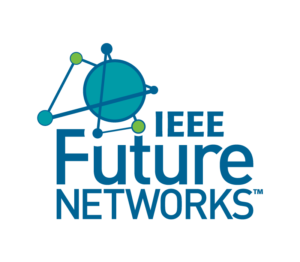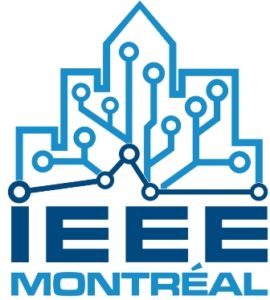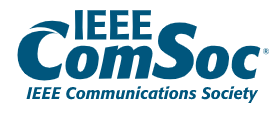13 October 2022 // 11:00 – 12:30 // Virtual-only
SCOPE
Cyberattacks on smart cities became epidemic-scale across the globe. US firm ABI Research predicts there will be around 1.3 billion connections in smart cities in 2024. The Indian government established a smart city project in 2015, under which the ministry of urban development has created 100 sustainable and citizenfriendly smart cities across the nation. Smart city development has a great potential to help citizens, governance, businesses, and local services, but its success depends on 3 primary issues (i)Infrastructure (ii) Security and (iii) Privacy. The infrastructure of a smart city involves various data from crime rates to rush hour stats to air pollution. Distribution and connection of sensors throughout the city and powering the smart nodes are still relevant problem statements. Scientists and engineers have made great measures to protect smart cities from cyber threats, but as computer science develops, the security of the smart city could be undermined at any time. Even the billion-dollar government and IT firms of first-world nations are unable to offer security measures to stop cyber threats on advanced cities like Atlanta, Baltimore, the island of Sint Maarten, etc.
Widespread internet attacks targeted all of these smart cities, disrupting essential governmental functions and costing these communities millions of dollars. Apart from security, privacy is also a major concern for the citizens of smart city. The installation of cameras on every street corner may reduce the crime rate, but it can cause serious privacy issues for law-abiding residents. The volume of data being gathered from all the smart sensors that locals interact with daily is another legitimate worry. The proposed symposium will discuss infrastructure, security and privacy issues of smart city. Symposium will consist of keynote lectures and panel discussions. invited lecture and panel discussion. There will be no parallel sessions. 3 Keynote lecturers (45 minutes including questions).
ORGANIZERS
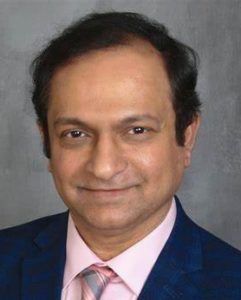 Ashutosh Dutta is an alumnus of Computer Science and Electrical Engineering Department at Columbia University. He used to work at Computer Science Department and he graduated with a Ph.D. degree from Electrical Engineering. Currently, Prof. Dutta works as a Senior Scientist and chief 5G strategist at Johns Hopkins University Applied Physics Lab (JHU/APL) focusing on security, mobility and Future Networks such as 5G. Prior to JHU/APL he worked as Principal Member of Technical Staff/Lead Member of Technical Staff/Director of Technology Security at AT&T’s Mobility and Cloud Security division. Prior to AT&T, he worked as the CTO Wireless at NIKSUN, in Princeton, New Jersey from September 2010 to February 2013. He worked for 13 years (1997-2010) at Applied Research Division of Telcordia Technologies, NJ, formerly Bellcore Telcordia as Senior Scientist. He was the Director of Central Research Facility CRF of Computer Science Department at Columbia University for 8 years from 1989-1997. He worked as a Computer Engineer for Tata Engineering and Locomotive (TELCO), Jamshedpur, India from 1985-1987. Prof. Dutta is also Sabbatical Fellow at Johns Hopkins University Computer Science Department and serve as an adjunct faculty. He has also served as an adjunct faculty at New Jersey Institute of Technology.
Ashutosh Dutta is an alumnus of Computer Science and Electrical Engineering Department at Columbia University. He used to work at Computer Science Department and he graduated with a Ph.D. degree from Electrical Engineering. Currently, Prof. Dutta works as a Senior Scientist and chief 5G strategist at Johns Hopkins University Applied Physics Lab (JHU/APL) focusing on security, mobility and Future Networks such as 5G. Prior to JHU/APL he worked as Principal Member of Technical Staff/Lead Member of Technical Staff/Director of Technology Security at AT&T’s Mobility and Cloud Security division. Prior to AT&T, he worked as the CTO Wireless at NIKSUN, in Princeton, New Jersey from September 2010 to February 2013. He worked for 13 years (1997-2010) at Applied Research Division of Telcordia Technologies, NJ, formerly Bellcore Telcordia as Senior Scientist. He was the Director of Central Research Facility CRF of Computer Science Department at Columbia University for 8 years from 1989-1997. He worked as a Computer Engineer for Tata Engineering and Locomotive (TELCO), Jamshedpur, India from 1985-1987. Prof. Dutta is also Sabbatical Fellow at Johns Hopkins University Computer Science Department and serve as an adjunct faculty. He has also served as an adjunct faculty at New Jersey Institute of Technology.
Pradipta Kumar Nanda graduated from VSS University of Technology (UCE Burla) in Electrical Engg with First Class (Hons) in the year 1984 and obtained master’s degree from NIT Rourkela in Electronics Systems and Communication in 1989 and obtained his Ph.D. from IIT Bombay in 1996 in the area of computer Vision. He had a full scholarship to pursue Ph.D. in the University of New Brunswick, Canada in the year 1992. He has been awarded scholarship from school level till PhD degree. He has served more than 21 years at NIT Rourkela. He joined NIT Rourkela in the year 1986 as a lecturer was promoted to Asst. Professor in the year 1991. He became Professor in Feb 2004 at NIT Rourkela. He was Head of the department from 2005-2007. He was the Secretary Teacher’s Council of NIT Rourkela for 6 years. Currently, he is the Pro-Vice Chancellor of Siksha O Anusandhan University, Bhubaneswar, Odisha. Formerly, he was the Dean (Research & Development) of Siksha O Anusandhan University. He is also the member of the Board of Management of Siksha O Anusandhan University, Bhubaneswar. He has completed several AICTE/MHRD sponsored projects and running a collaborative project with Center for soft Computing, ISI Kolkata. He was an academic visitor to School of Computing, University of Leeds, UK in March 2006 and delivered lectures to their faculties and students. He has delivered plenary speeches in IEEE International Conferences and several invited lectures in different workshops/summer and winter schools. He has been program chair of three IEEE International Conferences and General chair of an International Conferences. He has chaired sessions in many International and national Conferences. He has organized several National and International Conferences. He has been serving as a expert member of NBA, Govt. of India. He is a subject expert in DRDO, NITS and many National Level Institutions. On 14th Feb 2012, he has received the Bharat Jyoti award in a function at New Delhi from Indian International Friendship Society. He has received Odisha Technocrat award on 15th Sept 2013 form Evergreen forum of Odisha on the Engineers Day. He is a reviewer of IEEE transaction on SMC, IET Computer Vision and Image Processing, International Journals on Pattern recognition Letters, Digital Signal Processing, Journal of Electronics Imaging (SPIE) and many IEEE conferences. His research interests are Image Processing and Analysis, Bio-medical Image Analysis, Video-tracking, Computer Vision, Soft computing and their applications, Ad-hoc wireless sensor networks.
Debahuti Mishra is currently a Professor and Head of the Department of Computer Science and Engineering at Faculty Engineering and Technology (Institute of Technical Education and Research, ITER) under Siksha ‘O’ Anusandhan (Deemed to be) University, Bhubaneswar, Odisha. She has approximately 27 years of experience in teaching and research. Prof. Mishra has contributed seven books of International and National level on several core subjects and research domain in Computer Science. She also has around 200 research publications to her credit in several International and National Journals, Conferences of repute. She has successfully supervised sixteen Ph.D. scholars so far and presently fourteen more scholars are under her supervision under Siksha ‘O’ Anusandhan (Deemed to be) University. She serves as the Editor in several journals of National and International repute. She has a wider domain of research which includes health and bio-informatics, financial market data analysis, medical image processing, agriculture and crop prediction, meta-heuristic optimization, cloud containerization and defence signal transmission etc.
PANELISTS
Narang Kishor is a technology advisor, mentor, and design architect in electrical, electronics, and ICT with over 40 years of professional experience in education, research, design, and advisory. He has over 30 years of hardcore research, design, and development experience in fields as diverse as industrial engineering, power and energy engineering, IT, telecommunications, medical devices, and environmental engineering. Professionally, he is an electronics design engineer practicing design and development across a wide spectrum of products, systems, and solutions through his own independent design house, NARNIX, since 1981. For the last 10 years, he has been deeply involved in standardization in the electrical, electronics, communications, information technology and cyber security domains with a focus on identifying gaps in standards to bring harmonization through standardized interfaces to ensure end-to-end Interoperability. He has been leading national standardization initiatives at BIS, the Indian national standards development organization (SDO), in smart cities, smart manufacturing, smart energy, and active assisted living as the founding Chairman of the Smart Infrastructure Sectional Committee LITD 28, along with contributing to multiple other SDOs and initiatives. Globally, he is Vice Chair-Strategy and Project Leader of two international standards in IEC SyC Smart Cities, Convenor of Communication Technologies Work Group in IEC SyC Communication Technologies & Architectures, CoEditor in ISO/IEC JTC1/WG11 Four Standards, and Chair of Advancing Research Work Group & member Steering Committee of OCEANIS, beyond proactive contributions in many committees in global SDOs.
Narendra Mangra is the Principal at GlobeNet LLC, where he provides advisory and consulting services across industry, government, and academia. His diverse experience spans strategy development, roadmap development, spectrum management, mobile network planning and system deployments, enterprise-wide modernization, program management, and education. He is an Adjunct Professor at the George Mason University.
Narendra also co-chairs several IEEE initiatives such as the Future Networks INGR, Applications and Services WG, P1950.1 Smart Cities Architecture standards development, Public Safety Technology Initiative, and the Telehealth and Transdisciplinary Framework Industry Connections. His current interests include comprehensive transdisciplinary frameworks, 5G and future networks, digital transformation, smart communities, and related ecosystems.
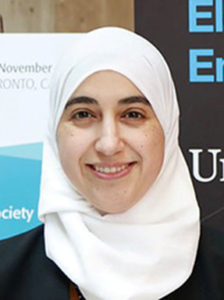 Eman Hammad, Ph.D., spent three years working for Price water house Coopers Canada as an Internet of Things and Industrial Security professional. There, she worked with the cybersecurity, privacy and financial crime division to support clients in fields including utilities, oil and gas, telecommunications, manufacturing, retail and transportation. During this time, Hammad worked with Reza Iravani, Ph.D., as a visiting researcher at the University of Toronto. She earned her doctorate in electrical and computer engineering at the University of Toronto under the supervision of Deepa Kundur, Ph.D. Hammad’s research aims to develop tools and approaches to better understand and improve the operational resilience, security and privacy of large-scale, cyber-physical systems in general, and in autonomous systems particularly. Her work utilizes theoretical and applied research tools at the intersection of system dynamics, communication networks, control theory, machine learning and cognitive science.
Eman Hammad, Ph.D., spent three years working for Price water house Coopers Canada as an Internet of Things and Industrial Security professional. There, she worked with the cybersecurity, privacy and financial crime division to support clients in fields including utilities, oil and gas, telecommunications, manufacturing, retail and transportation. During this time, Hammad worked with Reza Iravani, Ph.D., as a visiting researcher at the University of Toronto. She earned her doctorate in electrical and computer engineering at the University of Toronto under the supervision of Deepa Kundur, Ph.D. Hammad’s research aims to develop tools and approaches to better understand and improve the operational resilience, security and privacy of large-scale, cyber-physical systems in general, and in autonomous systems particularly. Her work utilizes theoretical and applied research tools at the intersection of system dynamics, communication networks, control theory, machine learning and cognitive science.
Sign up for email alerts to get the latest news and announcements for the 2022 IEEE Future Networks World Forum. If you have specific questions, contact us at FNWF@ieee.org.












